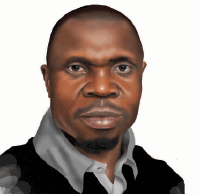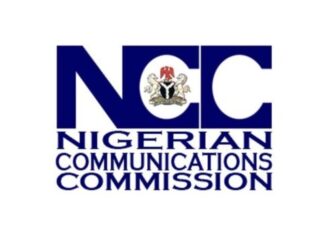Things keep happening with such speed that it’s like we are not supposed to sleep any longer. Just put on the television or radio, or grab a newspaper, you are likely to be puzzled by the speed of events.
A pastor friend believes there is just one channel of good news these days: the Bible. I’m persuaded to agree with him. He says watching the television, or reading the newspapers, is like inviting bad news into your life. I beg to differ; slightly.
Not all news are bad news. Some are unnerving; stunning. Others bring encouragement. Some come as a rude awakening while some bring fresh hopes. No doubt, some news reports create tears and build apprehensions.
News, in its entirety, is a mixed bag. That is the situation with the Ebola Virus Disease (EVD). Last week was a confirmation that EVD has finally gone global. It is no longer an African phenomenon.
In addition to the death of the first victim in the United States of America, last week, two health officials who treated the deceased were diagnosed of EVD and were in critical conditions.
As we prayed for their quick recovery, there was breaking news that another carrier of the virus had been discovered in Spain. She is a nursing official who had treated a victim in West Africa.
It was not long before news hit the airwaves, with the usual instantaneity, that a victim has passed on in Germany. So, from Africa to America and Europe, EVD has finally crossed boundaries.
Could this be the good news we’ve been waiting for: that with a global Ebola attack, a global search for its cure is underway? Something tells me that America and its European allies can solve this problem, but are reluctant to do so.
At present, in West Africa and wherever EVD exists, the best form of treatment is prevention. Remember the old saying: prevention is better than cure.
Wherever and whenever EVD is spotted, only in few circumstances is any importance attached to the real victims. We seem to have come to the deadly conclusion that he who has it is already condemned to die.
So when the Dallas incident occurred last month, health officials, especially those at the Centre for Disease Prevention and Control, quickly dispatched a team to identify potential victims, and build rings around them through isolation and diagnoses.
At the same time, Thomas Duncan, the unfortunate Liberian whose mission in Dallas would have been to benefit from their advanced health system and handling of the previous two cases of EVD, was allegedly left to die. His case was already hopeless.
The beautiful narrative in the TIME magazine of October 13 reconfirmed my belief that Duncan’s mission in Dallas was the same as that of Patrick Sawyer, the man who brought EVD to the shores of Nigeria.
Both were seeking treatment in countries they considered capable of handling their deadly cases. But they died and left strings of victims in their paths.
The TIME report states that: “Unlike in Liberia, Sierra Leone and Guinea, where Ebola could cause political upheaval and economic collapse, the U.S. has all the tools to fight Ebola that impoverished nations lack…”
The report mentions a surfeit of trained doctors and nurses, systems for a coordinated and quick national response and sufficient hospital beds and isolation units.
It observes that: “In short, the elements of public health are everywhere in Americans’ lives and are almost completely taken for granted – until they are suddenly front and centre, as a threat from over there rears up over here.”
The most important aspect of the report is that scientists in the universities and pharmaceutical companies in the U.S., United Kingdom (UK) and Canada are working frantically on the promising treatment of EVD.
It says that such efforts also include the search for a potential vaccine that could be given to the infected persons and those who are exposed to the infection and stand chances of being infected.
But until that happens, EVD victims are growing by the minute. The virus has become everyone’s problem eventually. International media that had hitherto dismissed it as Africa’s problem have now found the truth.
Despite concerted efforts by American and European countries to spread hope and not fear, the situation is different in some West African countries where the attack has overwhelmed hospital facilities. Corpses still lie in the streets.
My fear, as captured by TIME, is that even if the expected breakthroughs in America and European countries are rushed into widespread use by the end of 2014, they are unlikely to reach West Africa in time to stem the outbreak.
In addition, the tipping point is becoming menacing by the day. In fact, it is safe to say that in Liberia, the tipping point has been reached. This is where the attack is so sinister and uncontrollable that healthcare workers can hardly handle it any longer.
While the good news is that help is on the way, the bad news is that it may come a bit late. It may arrive when the grave has swallowed so many health workers, journalists and other members of the public. But I believe it will surely come.












